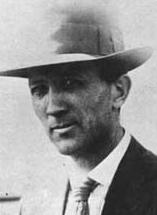Glossary of People: Fo (original) (raw)
Glossary of People
Foster, William Z. (1881-1961)
 Member of the American Socialist Party, a union organizer, leader of the 1919 US Steel strike and a founding leader of the American CP. He was the CP's candidate for president in 1924, 1928, and 1932, and its chairman after World War II.
Member of the American Socialist Party, a union organizer, leader of the 1919 US Steel strike and a founding leader of the American CP. He was the CP's candidate for president in 1924, 1928, and 1932, and its chairman after World War II.
See Comment on Foster by Max Eastman, April 1921, and William Z. Foster Archive.
Foucault, Michel (1926-1984)
 French (“post-”)-structuralist philosopher noted for his examination of the concepts and codes by which societies operate, especially the “principles of exclusion” (such as the distinctions between the sane and the insane) by which a society defines itself. Foucault’s analysis of the mechanisms of social power have been embraced by many social movements (such as People With AIDS) because of its explication of the de-centering of power and its facility in criticising almost any coherent theory of history or society.
French (“post-”)-structuralist philosopher noted for his examination of the concepts and codes by which societies operate, especially the “principles of exclusion” (such as the distinctions between the sane and the insane) by which a society defines itself. Foucault’s analysis of the mechanisms of social power have been embraced by many social movements (such as People With AIDS) because of its explication of the de-centering of power and its facility in criticising almost any coherent theory of history or society.
The son of a physician, Foucault studied under the (“post-”)-Marxist philosopher Louis Althusser at the École Normale Supérieure, Paris, and at the University of Clermont-Ferrand between 1960 and 1968 and then spent two years at the University of Paris-Vincennes. From 1970 until his death he was Professor of the History of Systems of Thought at the Collège de France.
Foucault's early studies concerned the history of mental illness and society's response to it. Society's use of the concept of madness in the 17th century is the subject of his Madness and Civilisation (1961). In his book Discipline and Punish: The Birth of the Prison (1975) he examined the origins of the modern penal system. In these and other books, Foucault put forth the thesis that institutions such as asylums, hospitals, and prisons are society's devices for exclusion and that by surveying social attitudes in relation to these institutions, one can examine the development and uses of power. Foucault shows how an issue (such as sexuality) is deemed in one period to be a religious issue, at another a medical problem, at another an issue of crime and punishment, and so on. However, Foucault's method militates against all kinds of generalisation, all conceptions of “historical period” for example, which he regarded as a questionable construction. The relation of his method to that of his Structuralist predecessors is much like that of mathematical analysis (based on ideas of continuity) to discrete mathematics, in which only numbers exist. The effect is a radical “de-centering” of politics – no longer is oppression derived from a great institution, but is seen to reside in an immensely complex network of interpersonal relations.
Among Foucault's other works are The Order of Things: An Archaeology of Human Sciences (1966) and The Archaeology of Knowledge (1969). His History of Sexuality, 3 vol. (1976-84), which examined the history of Western attitudes toward sexuality since the ancient Greeks, confirmed his reputation as one of the leading French intellectuals of his day.
Fourier, Francois Charles (1772-1837)
 French Utopian socialist; criticised the bourgeois society established by the French Revolution, pointing out the contradiction between the rhetoric of "liberty, fraternity and equality" and the reality of capitalism. Fourier drew upon the French materialists on the role of environment and education in moulding personality. He drew the conclusion that a social system which could develop and satisfy human "passions" was necessary. He put forward a model of cooperative labour aimed at producing material abundance and distributing according to contribution.
French Utopian socialist; criticised the bourgeois society established by the French Revolution, pointing out the contradiction between the rhetoric of "liberty, fraternity and equality" and the reality of capitalism. Fourier drew upon the French materialists on the role of environment and education in moulding personality. He drew the conclusion that a social system which could develop and satisfy human "passions" was necessary. He put forward a model of cooperative labour aimed at producing material abundance and distributing according to contribution.
See the Charles Fourier Archive.
Engels wrote of Fourier:
"If in Saint-Simon we find a comprehensive breadth of view, by virtue of which almost all the ideas of later Socialists that are not strictly economic are found in him in embryo, we find in Fourier a criticism of the existing conditions of society, genuinely French and witty, but not upon that account any the less thorough. Fourier takes the bourgeoisie, their inspired prophets before the Revolution, and their interested eulogists after it, at their own word.
"He lays bare remorselessly the material and moral misery of the bourgeois world. He confronts it with the earlier philosophers' dazzling promises of a society in which reason alone should reign, of a civilization in which happiness should be universal, of an illimitable human perfectibility, and with the rose-colored phraseology of the bourgeois ideologists of his time. He points out how everywhere the most pitiful reality corresponds with the most high-sounding phrases, and he overwhelms this hopeless fiasco of phrases with his mordant sarcasm.
"Fourier is not only a critic, his imperturbably serene nature makes him a satirist, and assuredly one of the greatest satirists of all time. He depicts, with equal power and charm, the swindling speculations that blossomed out upon the downfall of the Revolution, and the shopkeeping spirit prevalent in, and characteristic of, French commerce at that time. Still more masterly is his criticism of the bourgeois form of the relations between sexes, and the position of woman in bourgeois society. He was the first to declare that in any given society the degree of woman's emancipation is the natural measure of the general emancipation.
"But Fourier is at his greatest in his conception of the history of society. He divides its whole course, thus far, into four stages of evolution -- savagery, barbarism, the patriarchate, civilization. This last is identical with the so-called civil, or bourgeois, society of today -- i.e., with the social order that came in with the 16th century. He proves "that the civilized stage raises every vice practiced by barbarism in a simple fashion into a form of existence, complex, ambiguous, equivocal, hypocritical" -- that civilization moves "in a vicious circle", in contradictions which it constantly reproduces without being able to solve them; hence it constantly arrives at the very opposite to that which it wants to attain, or pretends to want to attain, so that, e.g., "under civilization poverty is born of superabundance itself".
"Fourier, as we see, uses the dialectic method in the same masterly way as his contemporary, Hegel. Using these same dialectics, he argues against talk about illimitable human perfectibility, that every historical phase has its period of ascent and also its period of descent, and he applies this observation to the future of the whole human race. As Kant introduced into natural science the idea of the ultimate destruction of the Earth, Fourier introduced into historical science that of the ultimate destruction of the human race.
Fredrick Engels
The Development of Socialism from Utopia to Science
Part 1: French Socialism